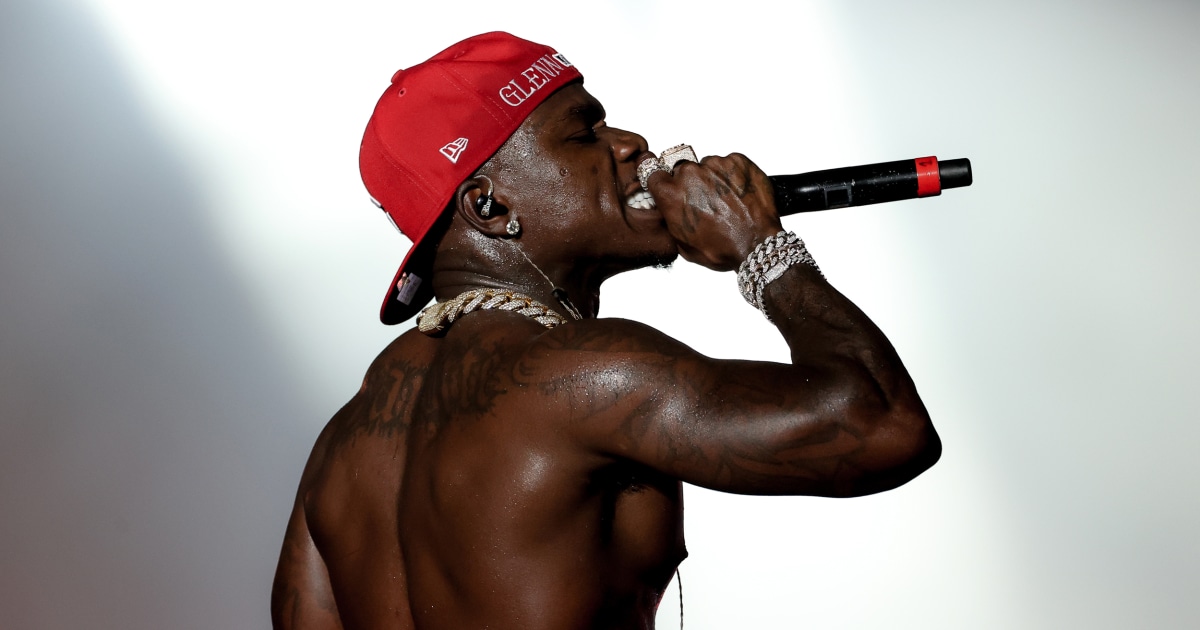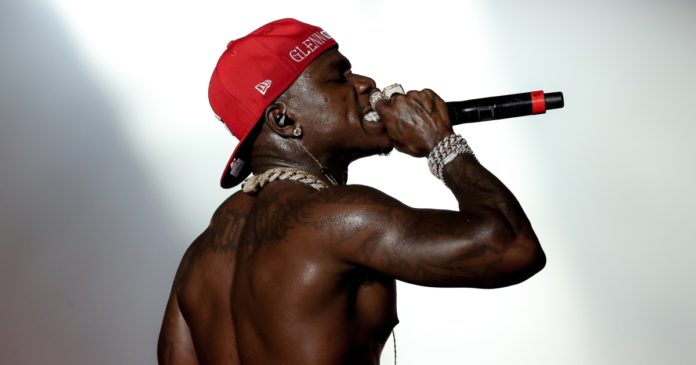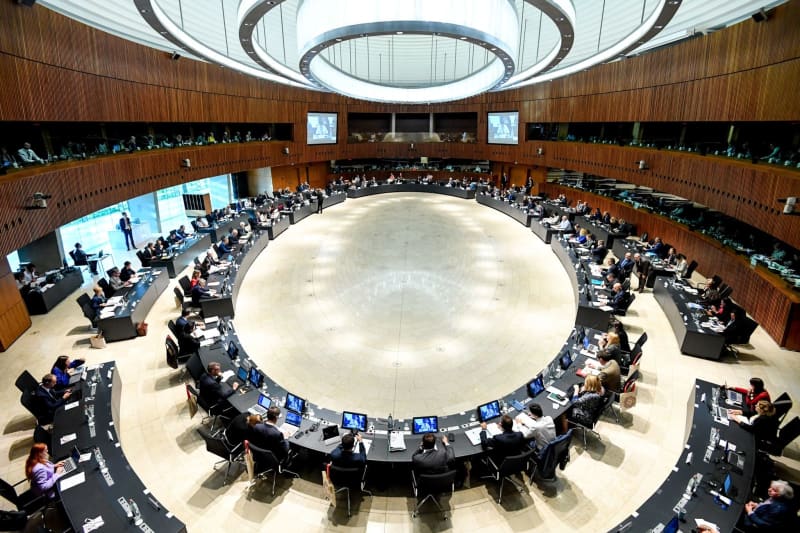
On July 25, rapper DaBaby interrupted the raucous return of Rolling Loud to Hard Rock Stadium in Miami Gardens, Florida, with an unsettling homophobic and HIV/AIDS stigma-filled rant.
DaBaby’s comments were met with swift backlash from members of the LGBTQ community and its allies.
DaBaby’s comments were met with swift backlash from members of the LGBTQ community and its allies — Elton John, Angelica Ross, Jonathan Van Ness, Indya Moore, Madonna, Chika and Questlove were just a few of the entertainers stepping in to denounce his words.
But just as quickly, a surge of hip-hop acts and fans of the rapper stepped in to defend and justify DaBaby’s statements. This support from DaBaby’s contemporaries included a lengthy Instagram Live video from T.I., who claimed DaBaby was being bullied and deserved to have his “truth” heard. Rappers Boosie, NLE Choppa, Tory Lanez and Trouble also spoke out in defense of DaBaby.
DaBaby doubled down on his comments the next day in an Instagram video — confoundingly going so far as to claim that his gay fans weren’t upset by what he said. But as the outrage mounted, he took to Twitter on July 27 to offer an apology, followed by an additional apology on his Instagram page as more and more venues dropped him.
Has DaBaby learned anything? Is he actually sorry? There are plenty of reasons to remain skeptical. But the bigger problem this debacle highlights is hip-hop culture’s ongoing LGBTQ problem. The toxic masculinity, misogyny and virulent machismo that continue to pervade the consciousness and branding of cisgender straight male music acts like DaBaby may not be the accepted norm anymore, but they’re still far too prevalent. And that prevalence can still cause real harm. The false statements DaBaby shared about HIV/AIDS and his homophobic words are part of a lengthy history of disrespect and othering that hip-hop acts and culture have weaponized against the LGBTQ community and used to demonize and dehumanize queer people. Trans actress Laverne Cox detailed in an Instagram video that DaBaby’s comments highlighted that the intersectional “relationship between homophobia, transphobia and misogyny are inextricably linked,” Cox noted.
Homophobic, transphobic and biphobic lyrics on hip-hop artists’ albums have even allegedly escalated into physical attacks on queer people by hip-hop artists.
From Offset of The Migos’ crudely saying “I cannot vibe with queers” in his rap from the 2018 YFN Lucci track “Boss Life” to rapper Pastor Troy’s posting a homophobic post on Instagram about rapper Lil Nas X’s 2020 Grammys outfit to the homophobic and transphobic lyrics of classic groups like N.W.A and Public Enemy, this anti-LGBTQ messaging has been a decadeslong problem. And these attitudes and controversies aren’t reserved only for straight cisgender men. Rapper Yung Miami of City Girls threatened to “beat” her son if he was gay during a 2018 The Breakfast Club interview. Even one of hip-hop’s biggest breakout stars of the last few years, Doja Cat, was revealed to have tweeted posts using a homophobic slur — she confidently admitted in a now-deleted post to having used the word “roughly like 15 thousand times in my life.”
In many cases, rappers have offered apologies once their anti-LGBTQ statements were exposed or resurfaced. But often, real consequences have been lacking.
Since he uttered his detestable and dangerous rant at Rolling Loud, DaBaby has been dropped from seven festivals — with expectations that he may be removed from additional events in the coming months. He was also dropped from the fashion brand Boohoo.
His removals from these festivals and brand deals are intentional and necessary actions. But are they enough?
His removals from these festivals and brand deals are intentional and necessary actions. But are they enough?
It seems like these losses would teach DaBaby a lesson both financially and socially. But when viewed within the larger cycle of hip-hop’s regularly unchecked dehumanization of the LGBTQ community, I’m worried that true accountability has once again been avoided.
One of the most visible markers of value and career success within the music industry — his recording contract with Interscope Records — is still intact. A temporary dent in his finances and his public profile is certainly an effective way to highlight the gravity of homophobic actions. But the long-term effects of DaBaby’s statements are likely to mirror those of the hip-hop acts that have said, tweeted and supported anti-LGBTQ statements before him — they’ll remain an asterisk even as he continues to succeed musically. Let’s see what happens when DaBaby drops his next catchy song.
Black, Afro-Latino and Latino queer folk have celebrated and aided ascent of the genre and have a deep cultural connection to what hip-hop represents for the Black and Latino communities both creatively and historically. We aren’t “bullies” for wanting artists to show us the minimum amount of respect in return. And our calls for accountability shouldn’t be dismissed as so-called cancel culture run amok.
In his second apology, DaBaby actually complained that he felt that the LGBTQ community didn’t offer to help teach him about his own ignorance. By raising that ludicrous grievance, he yet again chose to avoid taking responsibility for his ability to learn about each of the topics he freely took upon himself to weaponize against the LGBTQ community. Educating DaBaby about anti-LGBTQ issues and our community’s history isn’t the job of the LGBTQ community. That is work he must do on his own.
At some point, hip-hop must take ownership over its own actions and stop hiding behind feigned ignorance. The LGBTQ community isn’t hip-hop’s punchline, but as long as hip-hop artists can make jokes and spew hate at our expense, it seems likely our community will remain stuck in a demeaning refrain of bigotry, apology, repeat.








